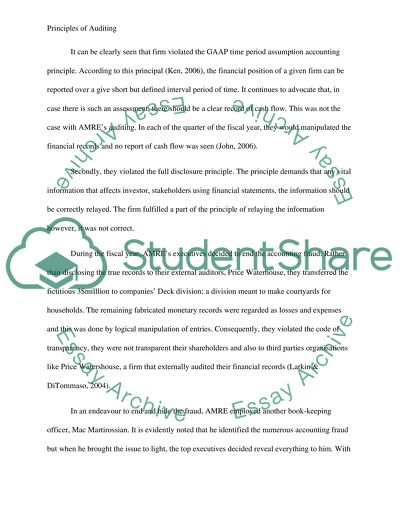Cite this document
(“Amre Inc Case (Ethics Case) - Principles of Auditing Essay - 1”, n.d.)
Retrieved from https://studentshare.org/finance-accounting/1671933-amre-inc-case-ethics-case-principles-of-auditing
Retrieved from https://studentshare.org/finance-accounting/1671933-amre-inc-case-ethics-case-principles-of-auditing
(Amre Inc Case (Ethics Case) - Principles of Auditing Essay - 1)
https://studentshare.org/finance-accounting/1671933-amre-inc-case-ethics-case-principles-of-auditing.
https://studentshare.org/finance-accounting/1671933-amre-inc-case-ethics-case-principles-of-auditing.
“Amre Inc Case (Ethics Case) - Principles of Auditing Essay - 1”, n.d. https://studentshare.org/finance-accounting/1671933-amre-inc-case-ethics-case-principles-of-auditing.


